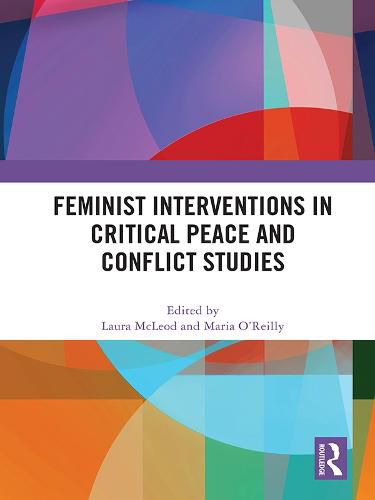Readings Newsletter
Become a Readings Member to make your shopping experience even easier.
Sign in or sign up for free!
You’re not far away from qualifying for FREE standard shipping within Australia
You’ve qualified for FREE standard shipping within Australia
The cart is loading…






This book provides a feminist intervention in Peace & Conflict Studies. It demonstrates why feminist approaches matter to theories and practices of resolving conflict and building peace.
Understanding power inequalities in contexts of armed conflict and peace processes is crucial for identifying the root causes of conflict and opportunities for peaceful transformation. Feminist scholarship offers vital theoretical insights and innovative methods, which can deepen our understanding of power relations in peacebuilding. Yet, all too often feminist research receives token acknowledgement rather than sustained engagement and analysis.
This collection highlights the value of feminist analysis to contemporary Peace and Conflict Studies. Drawing on case studies from around the world - including Croatia, Myanmar, Iceland, Nepal, India, Afghanistan, and Timor-Leste - it demonstrates why paying serious attention to feminist scholarship prompts useful insights for peacebuilding policy, practice, and scholarship.
Feminist theory, epistemology, and methodology provide a rich resource for critically analysing peacebuilding practices. In particular, the chapters highlight the value of feminist reflexivity, the contributions of a feminist corporeal analysis, and the significance of a feminist reading of core concepts in Peace and Conflict Studies - including hybridity, the local, and the everyday.
The chapters in this book were originally published as a special issue of Peacebuilding.
$9.00 standard shipping within Australia
FREE standard shipping within Australia for orders over $100.00
Express & International shipping calculated at checkout
Stock availability can be subject to change without notice. We recommend calling the shop or contacting our online team to check availability of low stock items. Please see our Shopping Online page for more details.
This book provides a feminist intervention in Peace & Conflict Studies. It demonstrates why feminist approaches matter to theories and practices of resolving conflict and building peace.
Understanding power inequalities in contexts of armed conflict and peace processes is crucial for identifying the root causes of conflict and opportunities for peaceful transformation. Feminist scholarship offers vital theoretical insights and innovative methods, which can deepen our understanding of power relations in peacebuilding. Yet, all too often feminist research receives token acknowledgement rather than sustained engagement and analysis.
This collection highlights the value of feminist analysis to contemporary Peace and Conflict Studies. Drawing on case studies from around the world - including Croatia, Myanmar, Iceland, Nepal, India, Afghanistan, and Timor-Leste - it demonstrates why paying serious attention to feminist scholarship prompts useful insights for peacebuilding policy, practice, and scholarship.
Feminist theory, epistemology, and methodology provide a rich resource for critically analysing peacebuilding practices. In particular, the chapters highlight the value of feminist reflexivity, the contributions of a feminist corporeal analysis, and the significance of a feminist reading of core concepts in Peace and Conflict Studies - including hybridity, the local, and the everyday.
The chapters in this book were originally published as a special issue of Peacebuilding.